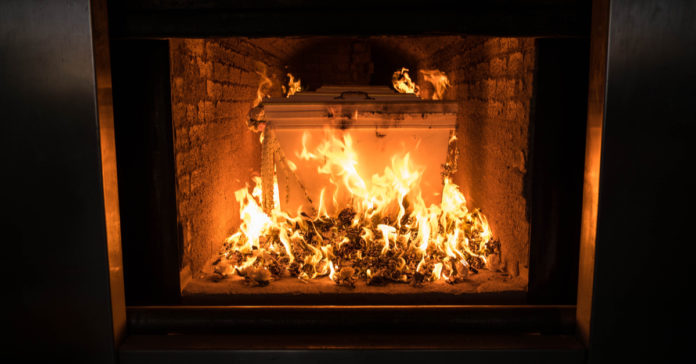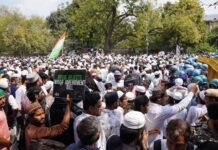The Sri Lankan government has insisted it will continue to cremate all coronavirus victims, effectively rejecting recommendations from its own medical experts to allow Muslims and Christians to bury their dead.
“This decision will not be changed for social, religious, political or any other personal reason,” Health Minister Pavithra Wanniarachchi said.
The announcement came despite a government-appointed expert committee noting last week that while it felt cremations were safest, burials could be allowed under strict conditions.
The government first banned burials in April amid concerns (which experts say are baseless) by influential Buddhist monks that burying bodies could contaminate groundwater and spread the virus.
The World Health Organisation has said that there is no such risk, recommending both burials and cremations of virus victims, but the Sri Lankan government has refused.
Last month, authorities ordered the forced cremation of at least 19 Muslim Covid-19 victims, including a baby, after their families refused to claim their bodies from a hospital morgue.
Sri Lanka’s Muslim Council (SLMC) accused the government of trying to provoke Muslim youths into doing “something rash” with its decision on cremations.
Subscribe to our newsletter and stay updated on the latest news and updates from around the Muslim world!
The SLMC said more than half of Sri Lanka’s 222 Covid-19 victims were from the Muslim minority which accounts for just 10 percent of the 21 million population.
Sri Lanka has experienced a surge in Covid-19 cases, with the number of infections soaring to nearly 46,800 from 3,300 in October and deaths rising to 222 from 13.
Meanwhile, on Friday the leading global voice of the legal profession, The International Bar Association’s Human Rights Institute, added its voice to the growing condemnation of Sri Lanka.
IBAHRI Co-Chair Anne Ramberg said: “Since the WHO guidance shows no public health risk through burial of COVID-19 victims, the Sri Lankan government’s policy of forcible cremation is in contravention of the Universal Declaration of Human Rights and the International Covenant on Civil and Political Rights (ICCPR)– Articles 9and 18respectively – which guarantee an individual’s right to freedom of religion, and the right to manifest their religion in customs and practice…
“Further, the WHO guidance states, ‘the dignity of the dead, their cultural and religious traditions, and their families should be respected and protected throughout.’ So, coupled with no scientific basis to deny individuals’ autonomy on how to manage the death of a family member, we call on Sri Lanka to reverse the enforced cremation policy and ensure the individual’s right to freedom of religion is upheld.”
IBAHRI Director Baroness Helena Kennedy QC added: “There are no guidelines from medical organisations worldwide to justify the policy of forced cremations in Sri Lanka, and no scientific evidence indicating that burial poses any threat to public health during the pandemic.
“China and Sri Lanka are the only countries to impose a policy of forced cremations. The WHO calls for the preservation of religious and cultural traditions in policies dictating the management of COVID-19 victims’ bodies. The Sri Lankan government must at once revert this policy to comply with international law and allow the Muslim population dignity in death, and the right to enact this fundamental religious tradition.”






















